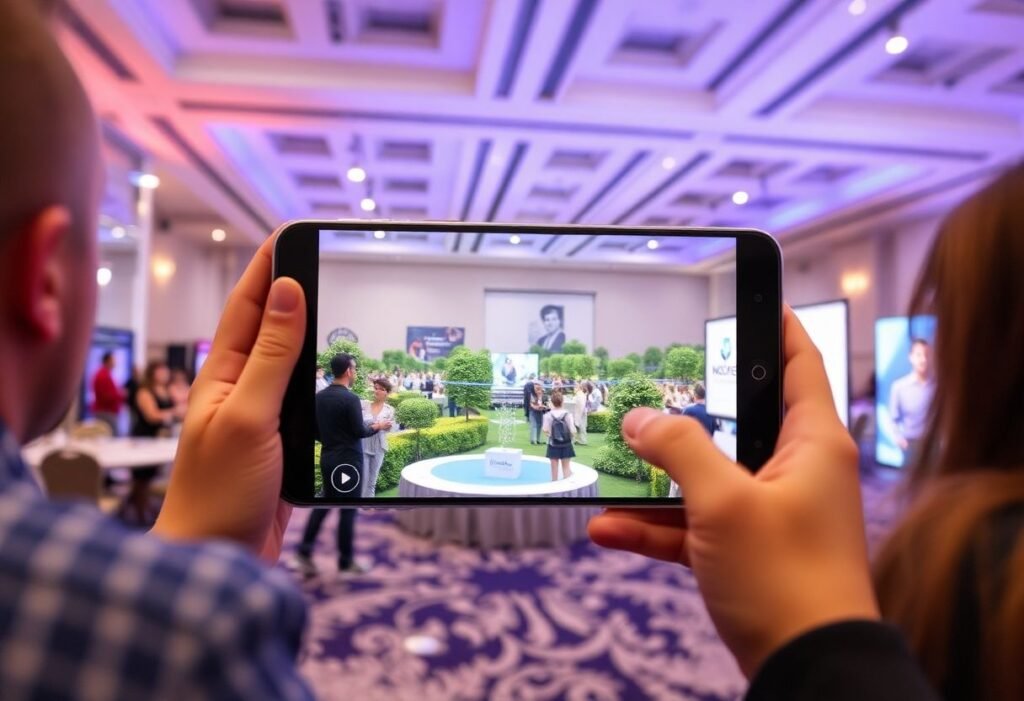The integration of augmented reality in event planning is revolutionizing how innovation is approached within the industry. This technology not only enhances engagement but also provides fresh avenues for creativity and interaction.
The Evolution of Event Planning through Augmented Reality
Augmented reality (AR) is significantly transforming the landscape of event planning. By overlaying digital information onto the physical world, AR creates immersive experiences that captivate audiences. This advancement has facilitated innovative approaches in showcasing products, services, and brand stories. For instance, companies can utilize AR for interactive product demonstrations, allowing potential customers to visualize and understand offerings more effectively. Transitioning from traditional methods to incorporating AR makes events more memorable and engaging, ultimately elevating the overall attendee experience. This evolution has prompted event planners to rethink strategies and invest in cutting-edge technologies.
Enhancing Engagement with AR Experiences
Engagement is pivotal in event planning and the use of augmented reality tools significantly bolsters this component. Immersive AR experiences enable attendees to interact seamlessly with content, subsequently fostering deeper connections with brands. For example, AR-enabled applications can allow guests to scan QR codes to unlock exclusive content or experiences that are not available through conventional means. This interactive element nurtures a personalized experience that attendees are likely to share, amplifying reach through social media platforms and word-of-mouth. As engagement metrics improve, so does the overall return on investment for event planning professionals.
Streamlining Event Logistics with AR Tools
Logistics can often be a complicated and tiresome aspect of event planning. However, augmented reality technologies help streamline these processes, providing significant time savings and reducing error rates. Tools that incorporate AR can assist with spatial planning, allowing event planners to visualize layouts in real-time. Furthermore, AR applications can aid in coordinating vendor placements, seating arrangements, and flow of attendees throughout the event space. By enhancing project management efficiency, event planners can allocate more focus to creative and strategic elements of their events, ultimately enhancing innovation.
Driving Innovation through Data Analytics
The integration of augmented reality in events is also a treasure trove of data analytics opportunities. AR platforms can track user engagement and behavior during an event, providing valuable insights for future planning. For instance, understanding which AR experiences attracted the most interactions can guide planners in refining their offerings. This data-driven approach fosters continuous improvement and innovation in event execution. By leveraging analytics, planners can innovate with confidence, ensuring their events resonate with target audiences and achieve desired outcomes.
Bridging the Gap Between Physical and Digital Worlds
Augmented reality serves as a bridge between the physical and digital realms, creating a blended experience that enhances traditional events. This technology allows for seamless integration of online elements, such as social media integrations, into live events. For instance, event planners can encourage real-time social sharing through AR features that provide tailored hashtags or sharing incentives. This approach not only promotes immediate engagement but also extends the lifespan of the event’s digital footprint, encouraging further interaction long after the conclusion of the event.
Looking Ahead: The Future of AR in Event Planning
The future of event planning is undeniably intertwined with the advancements in augmented reality. As technology develops, the possibilities for immersive experiences will expand, paving the way for increasingly sophisticated event formats. Planners must stay ahead of trends to anticipate how these tools can amplify engagement, creativity, and innovation. Furthermore, as AR becomes more integrated into everyday life, familiarity with this technology can drive attendee expectations, compelling planners to innovate continuously. Embracing AR is not merely a trend; it is essential for future-proofing the event planning industry.
Disclaimer: This content is for informational purposes only and should not be considered professional advice.





















